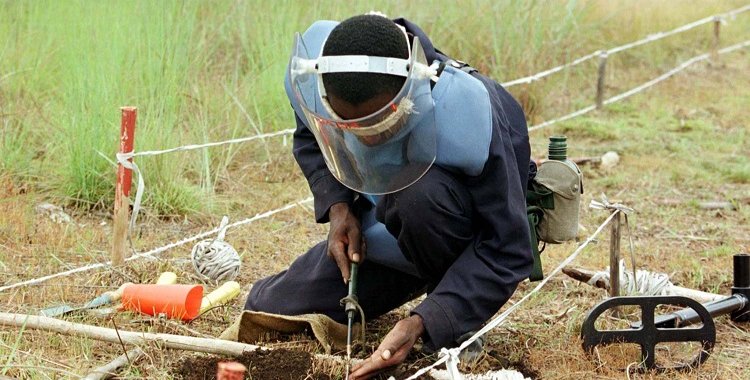The information was advanced by the responsible for the Exchange and Cooperation area of the National Intersectorial Commission for Demining and Humanitarian Assistance (CNIDAH), Adriano Gonçalves, on the sidelines of the coordination meeting of the Mine Action Sector of the coordinating body of the process.
According to Adriano Gonçalves, the country currently relies on the support of traditional donors, while operators are looking for new aid, to move forward with the demining process.
"In fact, in the last 10 years there has been a considerable decrease, this all related to the process of external funding, which has been very low and less and less and naturally the operators, namely the international ones, have great difficulties in working with an equal or greater intensity that they would like to have," said Gonçalves.
In statements to the press, the ambassador of the United Kingdom in Angola, Jessica Hand, said that international donations have been decreasing, reminding that at this moment all countries suffer the consequences of the covid-19 pandemic.
"So it is necessary to think new solutions, more innovative ways to facilitate the continuation of the demining process, it is necessary to identify the financial solutions a little different, not only the donations from Governments, but also the inclusion of private companies, organizations and other financial solutions to attract funding," she pointed out.
Jessica Hand assured that the United Kingdom will continue to support Angola, making funds available to British partners, but also helping the challenge of identifying other forms of financing.
In his turn, the Japanese ambassador in Angola referred that mines are still a problem that has hindered the development of the African country, with a great potential beyond oil, namely agriculture.
"One of our missions as a friend and partner country of Angola is to help in this area", assured Maruhashi Jiro, citing a donation of about 2 million dollars for the demining area, which will be used for the renovation of demining equipment.
The responsible for the area of Exchange and Cooperation of CNIDAH reported that the state made a historic contribution to the demining process of 60 million dollars, in 2019, for the cleaning of 153 affected areas of Cuando Cubango province.
"These are areas of interest for the conservation of biodiversity existing in these areas and attraction of environmental tourism, fundamentally, made a donation of 60 million dollars to The Hallo Trust for five years to do the cleanup of them," he stressed.
Angola is a state party to the Convention on the Prohibition of Anti-Personnel Mines, also known as the Ottawa Convention, as well as the conventions on Certain Conventional Weapons, on the Rights of Persons with Disabilities, and on Cluster Munitions.
In 2020, Angola ratified the Ottawa Convention signed in 2002, which entered into force a year later, committing to destroy all anti-personnel mines no later than the end of 2012, but in March of that year requested an extension of the deadline to December 2017.
However, in March 2017 it requested a further extension to December 31, 2025.
In its 2017 extension request, Angola indicated the existence of 1465 areas, which total 221,409,679 square meters still to be demined.
After research, demining efforts and data cleansing, as of July 2020 the remaining contamination amounted to a total of 94 suspected hazard areas, totaling 3.3 million square meters, and 1083 confirmed hazard areas, accounting for 85,108,718 square meters to address by the end of 2025.
"This means a total reduction of approximately 142,000,000 square meters from the national database since 2017," indicated the Mine Action Strategy 2021-2025.
Angola still has vast areas of territory contaminated by explosive devices, the result of three distinct phases of armed conflict from 1961 to 2002.







